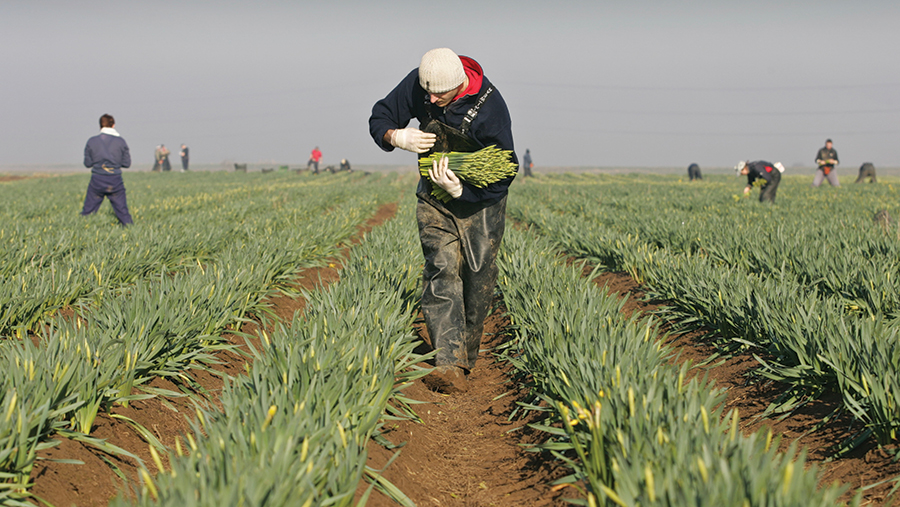Agricultural workers at risk from minimum wage violations
 © Tim Scrivener
© Tim Scrivener Workers in the agricultural sector are among the most vulnerable to being paid below the minimum wage and HMRC needs to be more proactive in punishing non-compliant businesses, a leading employment expert has warned.
Sir David Metcalf, emeritus professor of industrial relations at the London School of Economics, said a more proactive response was necessary to hunt down businesses that were actively breaking the law, as most investigations were currently prompted by employee complaints.
From last month, all workers aged over 25 have been entitled to a rate of £8.21/hour, and rates will be next updated in April 2020.
See also: What farm employers need to know about new payslip rules
HMRC data shows that just 33 businesses were investigated in the agricultural, forestry and fishing sector in 2017-18 – with 11 of those found to be in arrears with employees – from a cross-industry total of 4,388.
Sir David highlighted immigrant workers in the horticultural sector – many of them working for gangmasters, often having poor English skills and little knowledge of employment law – as being among the most at risk, as they are unlikely to complain.
Some are being held in “debt bondage” by unlicensed gangmasters who bring them into the country with the promise of full-time work and then offer them only part-time employment.
This gives workers no disposable income after gangmaster-deducted accommodation and transport costs, leaving them with no funds to return home or become independent.
Sir David stressed that the vast majority of farmers operated within the law and some violations would be inadvertent, but there was still a minority of businesses that sought to deliberately avoid paying workers what they were owed.
Employers found in breach of minimum wage rules will be forced to reimburse employees and pay a fine of up to 200% of the amount they have underpaid, capped at £20,000 per employee.
Free and confidential advice for employers and employees is available from the workplace advisory service Acas and complaints should be reported to HMRC via its website.
